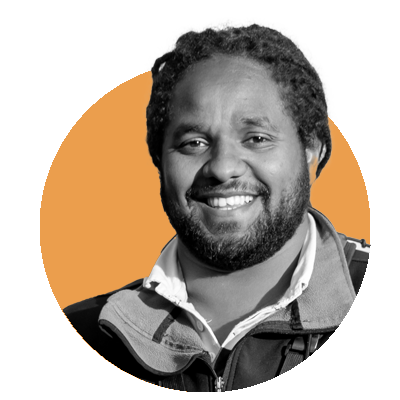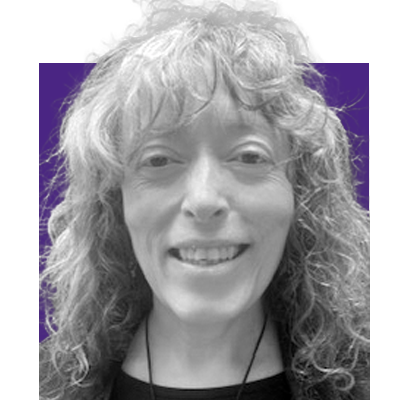Education Conference 2025

1 November 2025 | Technology and Innovation Centre, Glasgow
Teachers and educators are invited to join us for our 2025 Education Conference, ‘Dyslexia: empowering educators’. This year’s speakers and workshops will inspire and support you to make a real difference in your classrooms.
This year delegates will hear from former Strictly Come Dancing winner, wildlife cameraman and Dyslexia Scotland Ambassador Hamza Yassin as one of our keynote speakers. Delegates will have the chance to attend two workshops and visit our exhibitor area of dyslexia and education organisations.
Keynotes
Dr Jeremy Law: The Science of Reading

Our keynote speaker will be Dr Jeremy Law from the University of Glasgow who will talk about ‘The science of reading’. A fundamental insight from this research is that reading is not a natural process; unlike spoken language, there is no single area in the brain dedicated solely to reading. Instead, multiple brain regions involved in other tasks must form new connections in a specific way for reading to occur. Simply put… we are not born to read. So, how do children learn to read, and why do some struggle?
Dr Law’s talk will provide teachers with a roadmap for translating cutting-edge research, bridging the gap between science and practice to help build confident, capable readers.
Hamza Yassin: my dyslexia

Wildlife cameraman and Dyslexia Scotland Ambassador Hamza Yassin will share his experiences of dyslexia at the end of the day.
Workshops
A teacher’s perspective – support in the classroom
Susan Miller, ASL teacher (Primary), Dyslexia Scotland trainer and GTCS Dyslexia and Inclusive Practice panel group leader and Liz O’Donoghue, ASN teacher (Academy) and GTCS Dyslexia and Inclusive Practice panel group leader
How can the classroom experience can be adjusted to meet the needs of dyslexic young people? In this workshop, you’ll learn theoretically-informed practical strategies set within the reality of the Scottish needs-led context.
Part of the session will consider holistic overview examples when collating evidence towards confirming the nature of a young person’s literacy difficulties. This will lead onto what staff and parents want from a feedback report, including strategies and action points for both home and school.
Primary/secondary

ADHD: characteristics, key challenges, and strengths
Terri Lloyd, Psychotherapeutic Counsellor for Adolescents and Neurodiversity Consultant
Deepen your understanding of ADHD in this workshop and be able to define the 3 sub types of ADHD and the essential terms related to it, such as ‘inattention’, ‘hyperactivity’, ‘impulsivity’ and ‘executive function’ and how these can co-occur with dyslexia.
You will develop a sound knowledge of the main characteristics associated with ADHD symptoms, gain a comprehensive awareness of the impact ADHD may have on the learning environment and enhance your ability to implement effective strategies to support students with ADHD in the classroom.
Primary/secondary

AI in the classroom
Craig Steele, Director, Digital Skills Education
Artificial Intelligence apps and tools can make a huge difference for dyslexic learners. In this session, you’ll learn about some popular and powerful AI apps recommended by teachers across Scotland. These apps are free to access, and don’t take long to set up or learn how to use.
We’ll show you how these apps can support literacy and writing, maths and numeracy, and allow learners to be creative with technology. By the end of the session, you’ll have some practical examples that you can use in your classroom. No jargon, no knowledge of AI required.
This session is ideal for educators who are interested in learning more about AI and how it can be used in a responsible way.
Primary/secondary

Module 4 in the series of Dyslexia and Inclusive Practice modules
Hilary Aitken, Chartered Teacher (Lead) and Jude Durnan, Literacy Development Teacher, Edinburgh Learns
Learn from the Sean Connery Foundation Dyslexia Initiative in Edinburgh which has formed one of the new Dyslexia and inclusive Practice modules on Open Learn/Open University.
In the workshop you will be introduced to the Diagnostic Literacy Assessment (DLA) and strategies to support individual learners with dyslexia and literacy difficulties. The DLA is an assessment to identify strengths and specific areas for development in reading and spelling phonic and common words; oral assessment; writing – sequences/ story writing/ handwriting; reading in context.
Primary/secondary Support for Learning Teachers; Primary Class teachers.

Uncovering, understanding and unleashing the dyslexic student
Sharon Hall, Dyslexia Scotland Trainer and tutor and Dawn Roberts, Principal Teacher, Support for Learning
If you have limited knowledge of dyslexia or just want to refresh your practice, this workshop will give you the insights to truly understand the experience of having dyslexia and its daily impact both inside and outside of the classroom. You will learn to identify everyday hurdles faced by dyslexic students, be encouraged to recognise less obvious characteristics and challenges and discover how small, simple adjustments can significantly improve long-term learning. Ultimately you will gain practical strategies and advice to feel more confident and reassured in teaching and supporting your students.
Primary/secondary

Why morphology matters
Alexandra Boese, PhD student in Education at the University of Glasgow
This workshop introduces effective approaches to teaching morphology in the classroom. Workshop leader Alexandra brings extensive teaching experience from Canada, where she worked as a classroom teacher, as a Student Support Teacher, and in dyslexia and autism programmes.
In this interactive session, you will gain a foundational understanding of morphology and its role in literacy development. You will learn key terminology (e.g., prefix, base, suffix, inflectional, derivational), explore why morphology matters, and discover strategies for differentiation. The workshop, suitable for primary and secondary teachers, includes practical classroom-ready activities such as lesson plans, games, and other activities.
Primary/secondary

Costs
Early Bird Rate (until 14 September) £125 for members of Dyslexia Scotland or £140 for non-members.
From 15 September costs are £150 for members and £175 for non-members.
Costs include lunch and tea/coffee throughout the day. The closing booking date is 24 October.
Programme
| 8.45 to 9.30am | Registration |
| 9.35 to 10.45am | Keynote: Dr Jeremy Law |
| 10.45 to 11.15am | Tea/coffee/exhibition space |
| 11.15 to 12.30pm | Workshop 1 |
| 12.30 to 1.20pm | Lunch/exhibition space |
| 1.20 to 2.35pm | Workshop 2 |
| 2.35 to 3pm | Tea/coffee/exhibition space |
| 3 to 3.30pm | Keynote: Hamza Yassin |
| 3.30 to 3.45pm | Close |
Delegate booking instructions
For members of Dyslexia Scotland, or if you have a free place:
- Click on ‘Book a place’.
- Click on ‘Use ticket access code’ and enter the code that was emailed to you.
- Press ‘Apply’. Select a ticket and fill out the form.
If you are not a member of Dyslexia Scotland:
- Click on ‘Book a place’.
- Select a ticket depending on how you want to pay and fill out the form.
You will be asked to provide your first four workshop choices in the form.
If you choose to pay by invoice, we will require a purchase order number (if appropriate) and details of the person dealing with the invoice before we can finalise your booking. We will contact you for these details. Please email [email protected] with any questions around bookings.
Book as an exhibitor
Package includes:
- one standard-sized exhibition space with a table
- buffet lunch and tea/coffee during the event for 1 exhibitor
- an advert in our delegate brochure
- the chance to listen to keynote speeches.
Standard space £180
Extended space £230
Additional exhibitors £30 per person
There will the chance to set up the evening before the conference or from 7.30am on the day.
Once we receive your booking we will be in touch to confirm your place and make arrangements for payment. Spaces are not secured until payment has been made. Please email [email protected] with any queries around exhibiting at our conference.
Cancellation policy
Registered delegates may receive a full refund of any payment made up to 30 days before the event. From 29 days before the event, no refunds will be made unless Dyslexia Scotland is forced to cancel the event.
Dyslexia Scotland is unable to reimburse attendees if they are not able to participate on the day. Dyslexia Scotland will not accept liability for people unable to attend due to circumstances outside our control (such as illness, work, personal commitments, travel disruption, adverse weather).